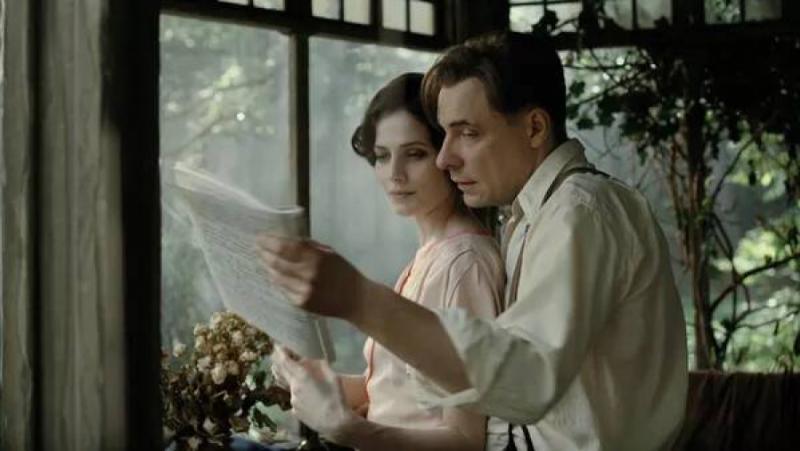/ world today news/ Just two years ago, in the press, minds and restaurants of the capital, bohemians and their companions celebrated the mourning celebration for “leaving Hollywood”. Restrictions were supposed to wreck the economy, and the lack of “American movies” would put an end to the usual mass cultural recreation.
Just as they got the sanctions wrong, so they got the predictions about the most important of the arts wrong. Russian cinema feels not just great – it intends to catch a cold (if and when) at the funeral of Western cinema. Hollywood survives on blockbusters and at the expense of Asian viewers, while all European cinema is, first, subsidized, and second, protected by non-market methods, the main one being quotas for American products.
We have nothing to do with quotas (it’s great that it is!), we treat protectionism with restraint. Therefore, those responsible for the distribution acted like parents who want to teach their child to swim. Being around while it’s in the water. Two years later, it became clear that everything was done correctly. Russian cinema is able to bring viewers to the cinema. Regardless of the genre and effects of the realized project. We want to watch our movies made by our directors. And most importantly, we want to see our lives and ourselves on screen. Viewers are ready to vote with their money for this method of national self-knowledge.
Regardless of personal preferences and other tastes, cinema is not only an art, but also a business. And in business, the money allocated for the project must be returned to the investor. It’s pretty good to get them back at a profit.
Regardless of what the leaders of public opinion and other announcers think, the first principle of production is always profit, and then the deep theory of art.
In the case of the film “The Master and Margarita”, in which the title and several plot lines remained from the novel, the state, having supported the idea of a film adaptation with significant funds (800 million rubles), did not lose. This week, the film collected 1136 million rubles (one billion hundred and thirty six million rubles) and this is only the second seven days after the release of the film.
In this narrow sense, we can (and should) speak of the victorious foresight of those who signed the settlement sheet, thereby approving it.
Then we can talk about the stylistic inconsistencies in Bulgakov’s novel, about the arrogance of the screenwriter and director, who took almost everything from the blue-eyed Mikhail Afanasievich, but from our so well-known cinematic modesty (in quotation marks), noted the contribution of the brilliant Russian writer with the expression ” based on.” Yes, as in the bearded joke about Caruso singing. It is possible, but is it worth wasting time and space to catch the creators in mistakes, misunderstanding the text and at the same time the context of “The Master and Margarita”, their common “politeness” with which they tried to clog barrels of meanings , included by Bulgakov in his vision?
The answer is obvious and it is negative.
We, for our part, seeing how helpless those who try to adjust the novel to suit themselves and their fellows sometimes appear, would venture to say this.
All those millions of viewers who brought their rubles to the theaters did not do so out of interest in what director Hicks was filming based on the script of playwright Igrek, but out of the need to see the characters on the screen. How convincing the actors are, how luxurious the sets are, how well the costumes are arranged and how the main character’s hair is styled. What is interesting to the viewer is this, not the insidious solutions proposed by the authors.
Having said “a”, we will also say “b”.
No director has yet been born who has been able to adapt this novel to his own concept so that the film adaptation (or “based on it”) becomes an independent artistic entity. Only Tarkovsky possessed such skill (both Stalker and the earlier Solaris, remember, were film adaptations of Strugatsky and Lemm, respectively).
Having said “b”, we will also say “c”.
In a situation where our country is under tens of thousands of sanctions and is slowly but surely building a new world, there are always people who want quick solutions and no less drastic restrictions, especially in the field of culture.
Russia allowed the point of view contained in the film to be expressed (about the “bloody regime”, about “totalitarianism”, about the “authors of forty million denunciations”). And this essentially means that our social life today is not just freer than ever, it is freer than anywhere else.
Don’t you like what happened to the country in the 1930s? Here’s your chance to talk about it. The reflection with which one disagrees has a right to exist. It has the same right to exist today in Russia, and this is an axiom for us.
In relation to the freedom and right of speech supported by the state, it is important to note this.
We consider Mikhail Afanasevich our Russian genius. Although it is worth remembering in today’s world order proposed by our ideological opponents, dividing people by place of birth, skin color and other characteristics: the Russian writer was born in Kiev. He ended up in Moscow only at the age of 30 – a completely, generally speaking, formed man. In Kiev, however, Bulgakov was treated politically in a Ukrainian manner. That is, they branded him a “Muscovite” for “connections with Russia”, hastily adding some completely unimaginable nonsense to the fabric of his life.
We calmly accept the point of view that is shown in the film. Not because we agree with it, and not because we may not have the arguments or the resources to question that view or isolate it, keep it secret.
We calmly accept this opinion because we know (by the way from Bulgakov) that the most terrible anger is the anger of powerlessness, and we are strong. Consciousness of one’s justice is a slightly different designation of freedom. It is impossible to burn freedom as it is impossible to destroy a manuscript.
The film’s box office receipts, which exceeded one billion, show that there is public agreement on this issue in our country.
This is perhaps the most important result of the box office success of the film based on the great novel.
Translation: V. Sergeev
#Mikhail #Bulgakov #defeated #Hollywood #Ukraine


